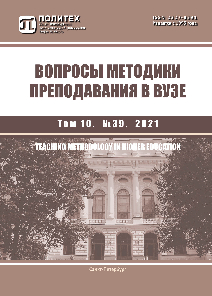THE PRACTICE OF APPLYING THE PRINCIPLE OF ACTIVATION IN TEACHING FOREIGN LANGUAGE COMMUNICATION OF STUDENTS OF NON-LINGUISTIC FIELDS
Abstract. Increasing the level of student engagement and motivation in learning foreign language presents a significant challenge for educators in a non-linguistic university. The key to successful implementation of this process lies in ensuring active student involvement in the learning experience. The implementation of the activation principle in teaching foreign language communication requires the creation of specific conditions and the utilization of various teaching techniques and methodologies to stimulate students' educational, cognitive, and active speech activities. The aim of this study is to analyze how the activation principle is implemented in the process of foreign language instruction for students in non-linguistics fields of study. The author attempted to identify and describe the conditions and factors that contribute to increasing the level of student engagement in the learning process of a foreign language, considering various aspects of lesson planning based on a didactic analysis model, including goal-setting and reflection on goal achievement, organizing student activities in different social and organizational settings, teaching materials and resources, and the role and activity of the teacher. Drawing on this, specific methodological recommendations have been formulated for designing both the overall course on foreign language learning and separate lessons, as well as for planning lessons and their various aspects, based on the principle of activating educational and cognitive engagement.



